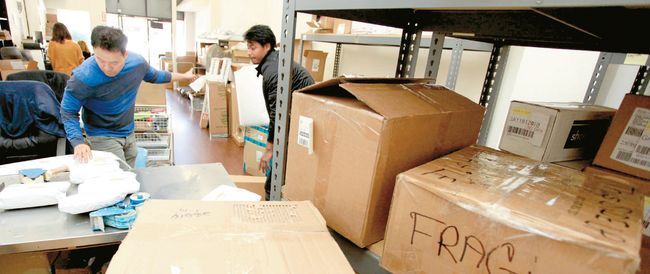
#A northern Los Angeles resident, identified only by his last name Lee, recently sent some bottles of vitamins to his parents in South Korea. Normally, packages arrive within 10 business days, but Lee’s parents have not received the vitamins after three weeks.
When Lee contacted the shipping company, he learned that the package had been held by the customs authorities. The reason for the hold was that Lee needed to have a UNI-PASS along with an explanation. Lee had no idea why this had happened.
Such is the case, many Korean-Americans still remain unaware of the policy to have a UNI-PASS to send packages to South Korea. Even the shipping companies in the U.S. are not doing a sufficient job of letting the customers know, which has added to the trouble even further.
The UNI-PASS system consists of 13-digit code designed to distinguish each package for identification purposes. In the past, senders were required to provide the receiver’s Korean social security number, but privacy issues have led to the launching of a new system in March 2015. The UNI-PASS system has been effective since then.
The UNI-PASS code is required for all general packages going through customs. Packages without items that do not necessarily have to be listed do not require the UNI-PASS code, but the policy is tricky as items that contain certain substances could prompt further screening.
When sending packages to Korea from the U.S., the items are classified as either goods for list-clearance or general clearance. Any item classified as list-clearance, regardless of its origin, is subject to tax exemption if it is valued under $200. Those items may include apparel, kitchen appliances and shoes. However, leather goods are not included. Items classified as general clearance comes with a standard tax rate of $150.
According to the shipping industry, general clearance usually include ▶medical appliances ▶health-related goods ▶perfumes ▶liquors ▶baby foods ▶cosmetic products.
The biggest problem is that many are still unaware of such a policy, even though the South Korean customs authorities have been expanding the list of regulated goods in packages. For example, omega-3s, propolis, royal jelly and glucosamine have all been excluded from goods for list-clearance.
“Many Koreans still don’t know what UNI-PASS is,” said Dazen Express president Jung-jae Hwang. “If the package includes an item that has been excluded from goods for list-clearance, the UNI-PASS code must be provided for it to go through customs properly.”
Another shipping professional added: “The customs authority could apply a different standard if the items included in some packages are vague.”
Vitamins and diabetes medications that contain echinacea or ALA, as well as beef jerkies, ham, and sausages, are also banned from being sent in packages. Sending such items will result in disposal of the package by the customs authorities and an additional charge on the sender.
By Sungcheol Jin




